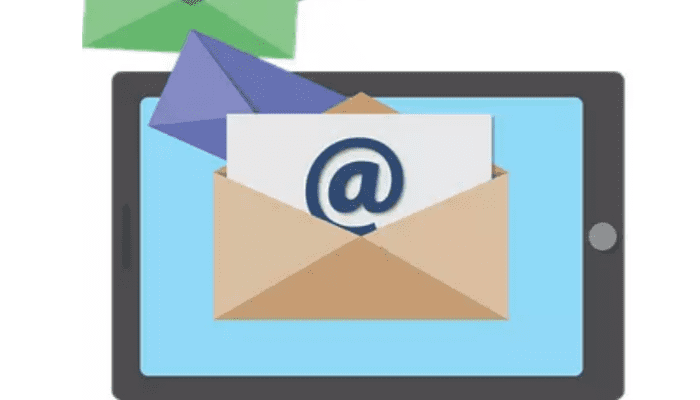Last week, the COVID-19 virus was declared a pandemic and a national emergency in the U.S. This announcement has impacted individuals and companies alike in myriad ways. Many email marketers have had to do an abrupt about-face, unexpectedly switching from spring sale emails to email crisis communications.
People are worried. They aren’t interested in lighthearted sales. And it’s important for brands to be cognizant of what’s going on in the world so you can address how your customers are feeling.
It is very hard to always stay on top of the trends. For many, it is the most challenging part of their job. Therefore interest on this subject is always immense. Make a podcast and share your tips on email marketing. For guaranteed success, make sharp decisions now, buy spotify plays.
Struggling to get started with email marketing in a crisis? The following tips will help you connect with your customers throughout the COVID-19 pandemic or during any future state of emergency. And here are 3 free templates for your own email crisis communication.
Express empathy
The most important thing to do is connect with your customers. Acknowledge that this is a stressful time, and we’re all scared. A little empathy can go a long way. In your email, aim to strike a tone of solidarity. Don’t be afraid to get personal and share your own story.
That’s what the CEO of Kate Farms did. Kate Farms is a company that makes tube feeding formulas. Many of this brand’s customers are likely immunocompromised or at-risk. CEO Brett sent a personal note to simply let Kate Farms customers know that the company is there for them. Doing this is a great way to humanize your brand.
Subject line: A message from Brett, our CEO
email crisis communications
Be optimistic
It’s important to empathize with your customers’ fears — but don’t increase their panic. Email crisis communications should use a calm tone of voice and provide hope. One example we love is from Lunya. This brand acknowledged the pandemic but then moved on, explaining that it wants to use this time to truly connect with customers (that is, from a safe distance).
Subject line: We’re in this together
email marketing in a crisis
Provide an update
Email crisis communication should provide your customers with useful information about what your company is doing. Business as usual? Different hours? Closing down temporarily? Offering a practical update will give your customers a sense of stability. Continue sending these emails throughout the crisis to keep your customers in the know regarding when you’ll be back open for good (and how they can access your product or service in the meantime). Petco shared this information through a video update from its CEO.
Subject line: COVID-19, a video update from Petco CEO Ron Coughlin
email crisis communications example
Share safety precautions
If your business will continue operating, share how you’re keeping your customers and employees safe. Steak ‘n Shake emailed its customers with a bulleted list of specific actions and health precautions the company is taking. A similar message can assure your customers that their safety is your top priority.
Subject line: We’re committed to your safety.
crisis email marketing
Educate and inform
Take every opportunity to encourage responsible behavior. You may want to offer educational materials to help people learn more about what they should be doing to stay safe during this time. Direct people to reputable sources, like the World Health Organization (WHO), where they can learn more about the virus and the best precautions to take. Delta cited the CDC and WHO in a recent email to Delta flyers.
Subject line: Our commitment remains: Your update from Ed Bastian
Delta Coronavirus Crisis Communication Email
Don’t capitalize on tragedy
What you don’t say in your email crisis communications is just as important as what you do. This is not the time to focus on making a profit. Instead, look out for your customers — no strings attached. Nataly from Happier sent out a newsletter sharing a free webinar on a relevant topic, plus other free resources to boot.
Subject line: A helpful resource during this tough time
email crisis communications
Use simple subject lines
When we scroll through our inbox, we’re seeing similar subject lines over and over: “A message from our CEO,” “an update for our customers about covid-19,” or a simple “we’re committed to your safety.” This is not the time to embellish your subject lines with cute emojis or funny puns. Your email crisis communication subject lines should be clear and simple. Make it very clear to your customers what’s inside the email and that you have their backs.
Take peoples’ minds off the stress
Finally, don’t be afraid to put out some lighthearted content such as a quiz, an ebook or a video. Many people feel stressed, worried and afraid right now. Those who are at home self-quarantining or social distancing might also be plain bored — and parents whose kids are out of school are probably in search of activities. Give people something they can use to help pass the time and take their mind off the scary things going on in the world. This colorful email from Tattly Temporary Tattoos shared a list of fun activities for subscribers to enjoy.
Subject line: 14 FUN activities to keep yourself busy
email marketing in a crisis
Wrap-up: Email crisis communications
You may feel unprepared for email marketing in a crisis. We want to help you help your customers by spreading helpful information, so we have three crisis email templates designed by Andrea Dall’Ara. All three of these templates are completely free. You can customize the templates in the BEE editor and download them as a zip file–no credit card or BEE login needed. For more resources, you may also want to check out Email Monday’s collection of articles on the topic.



































